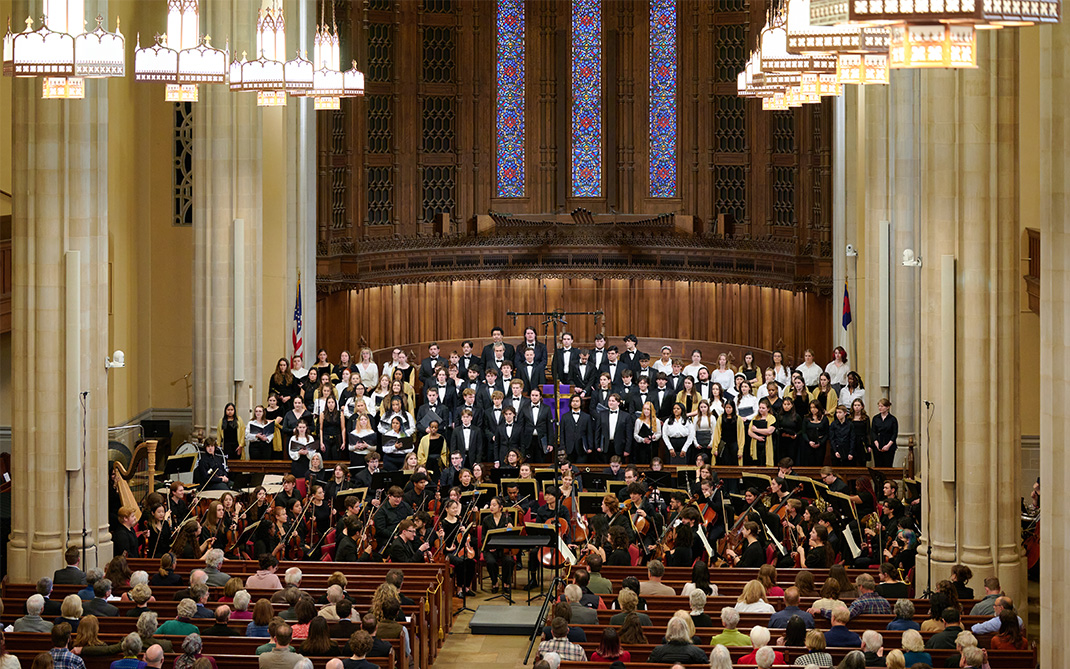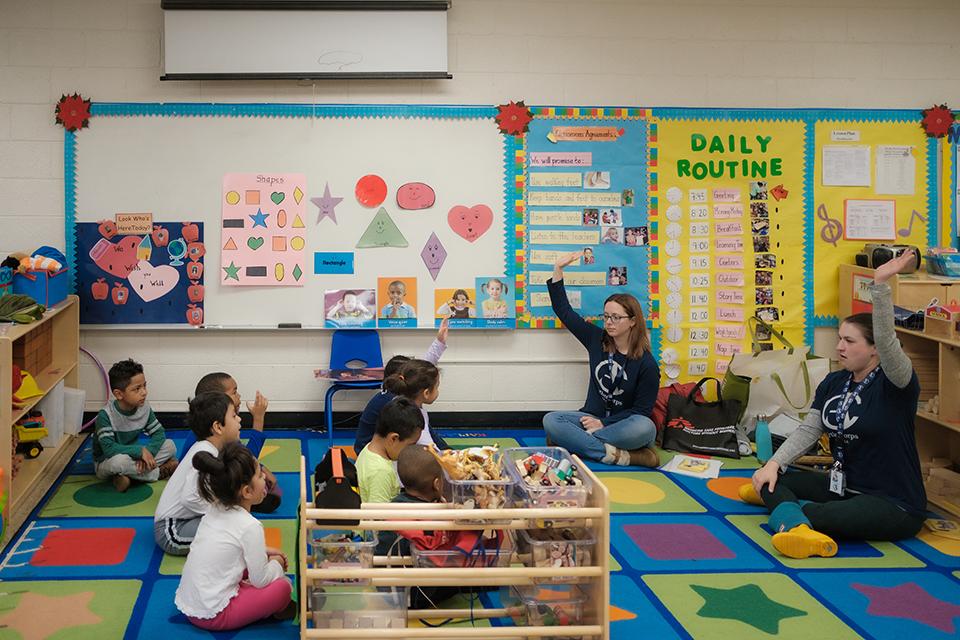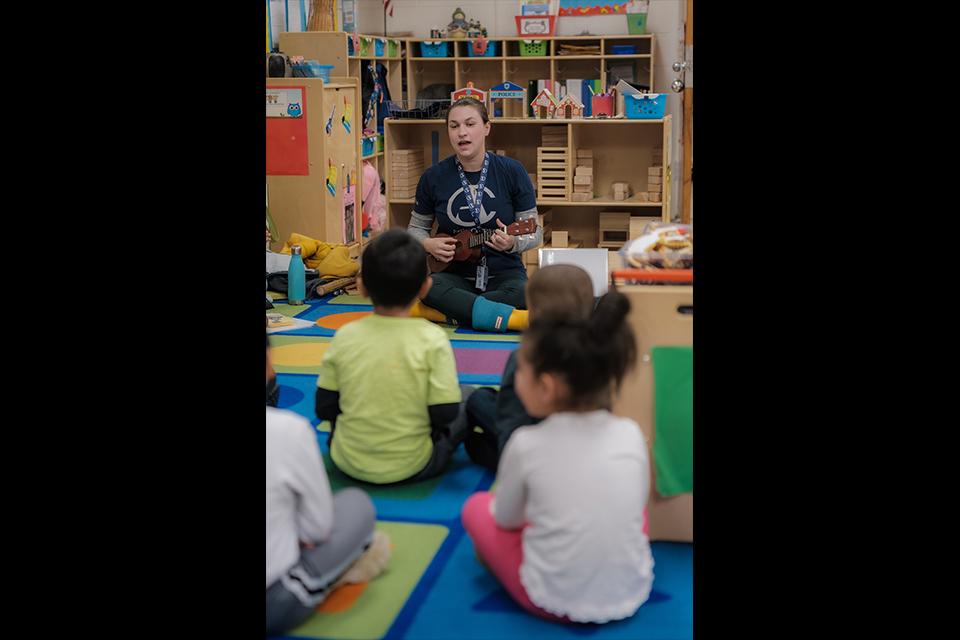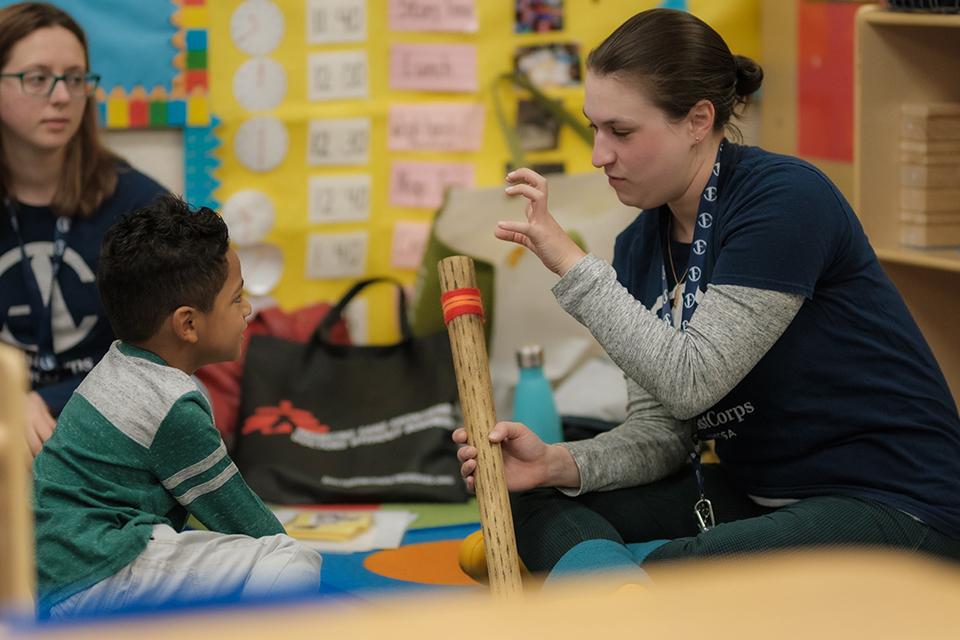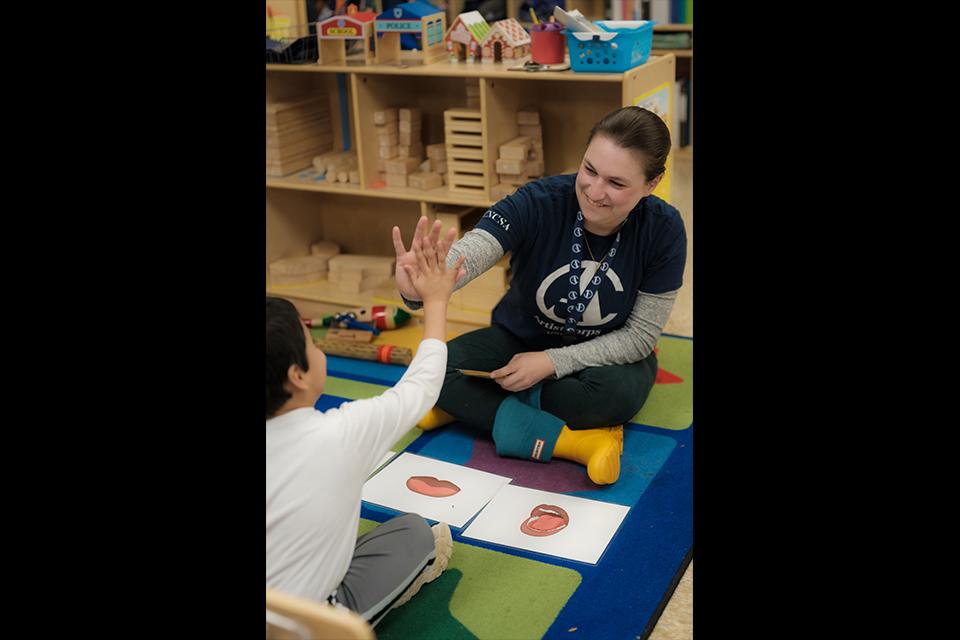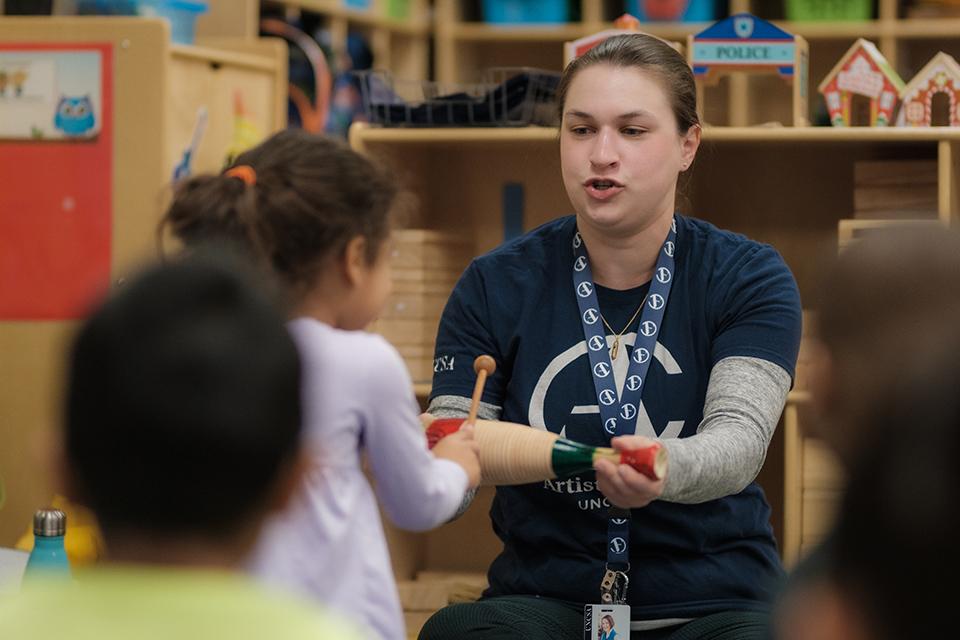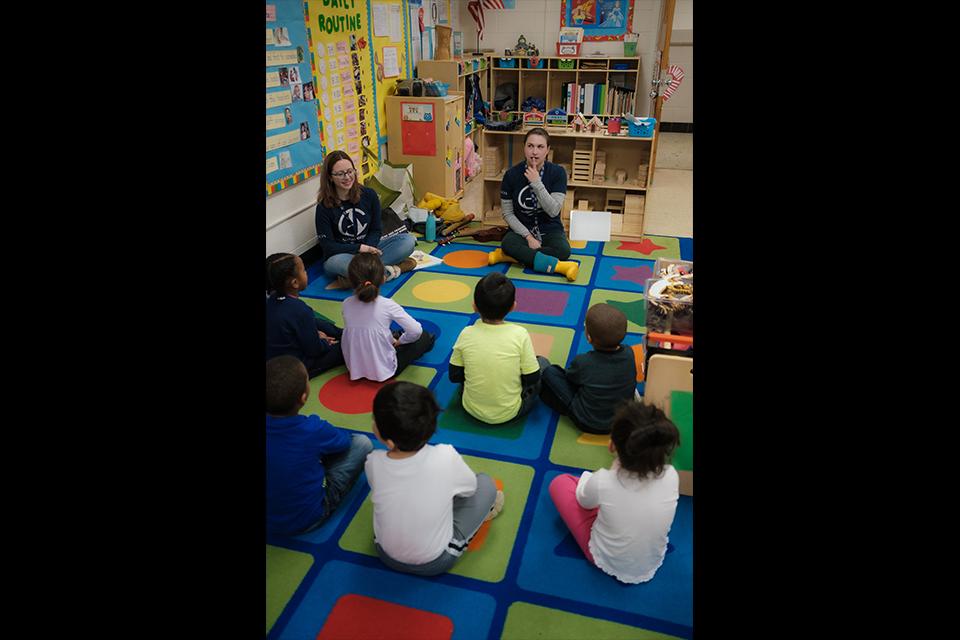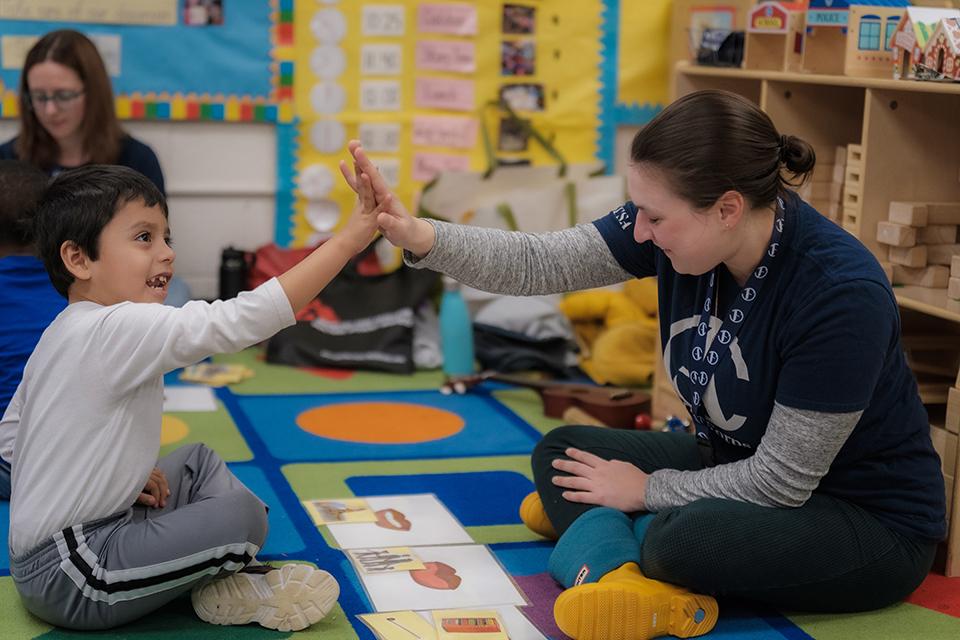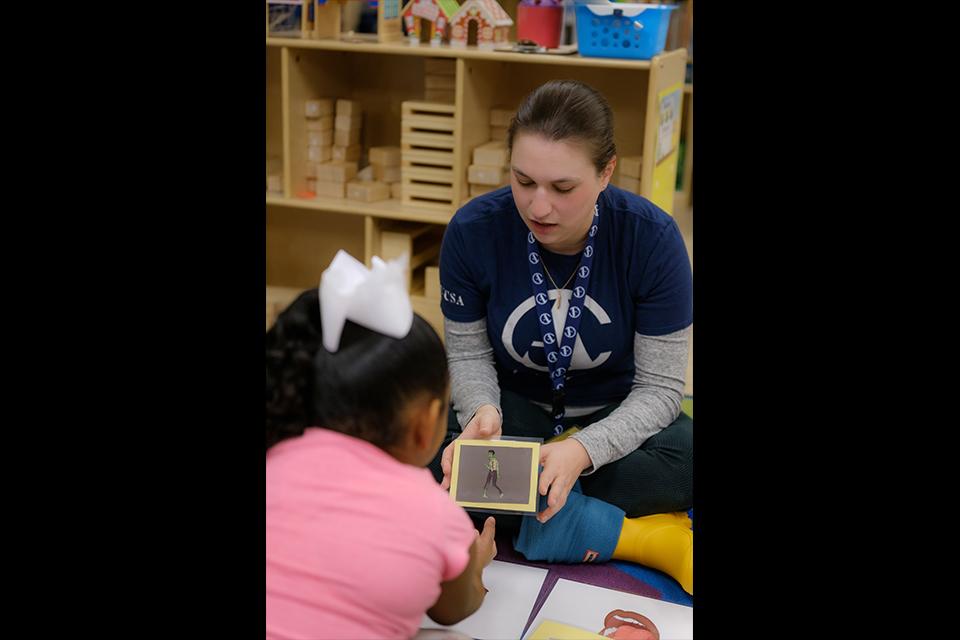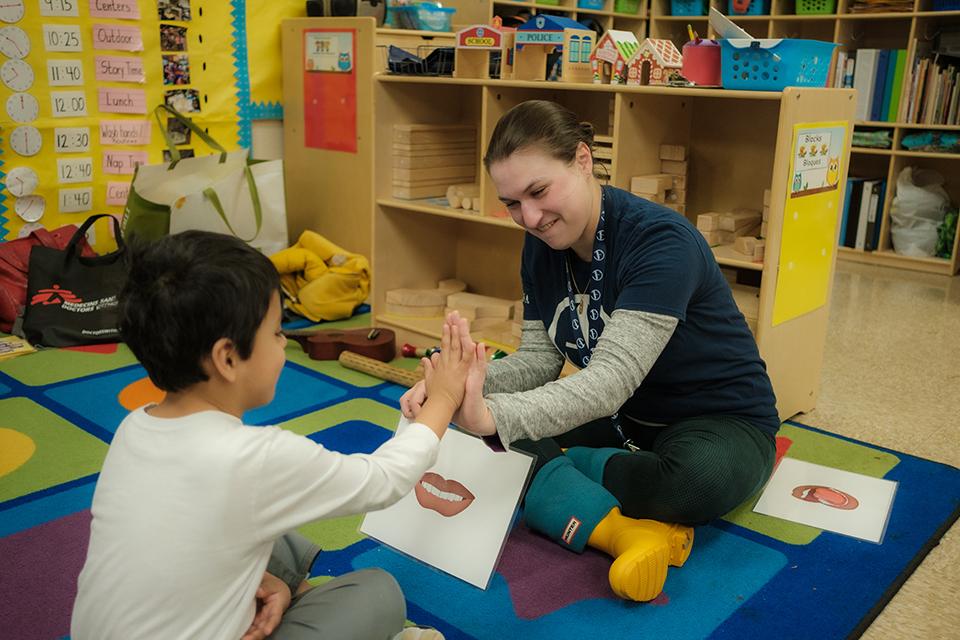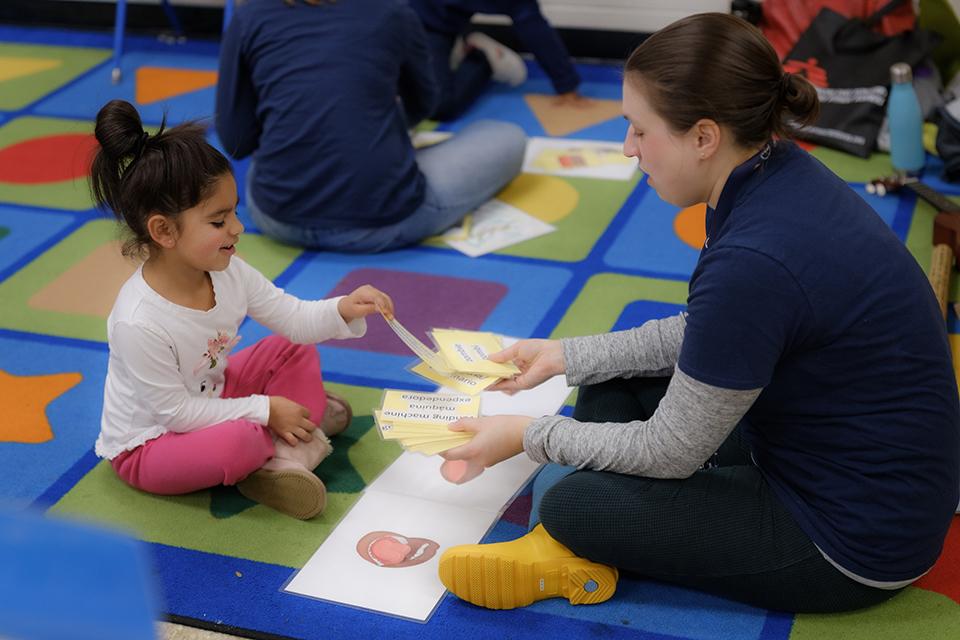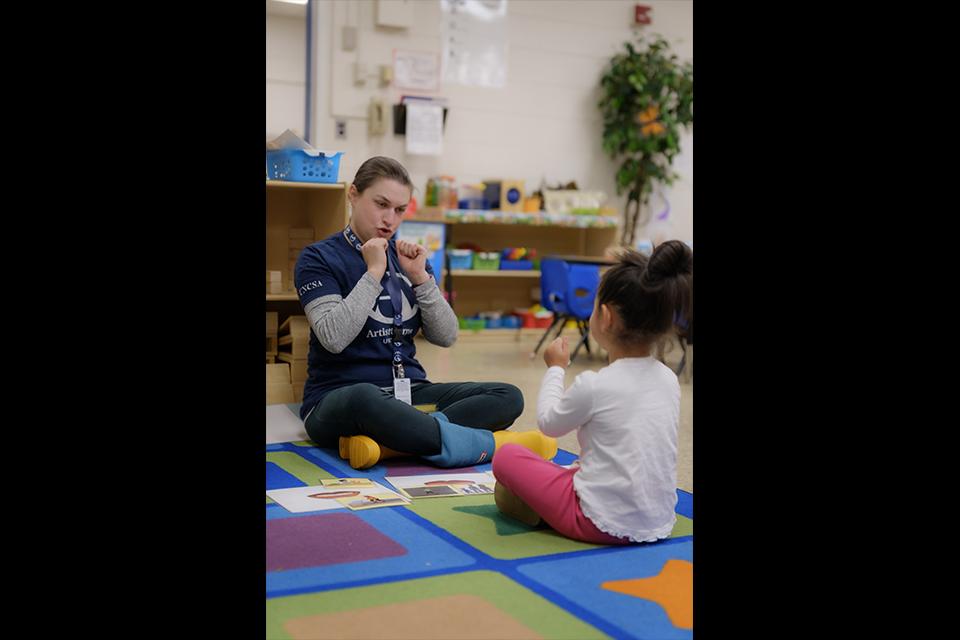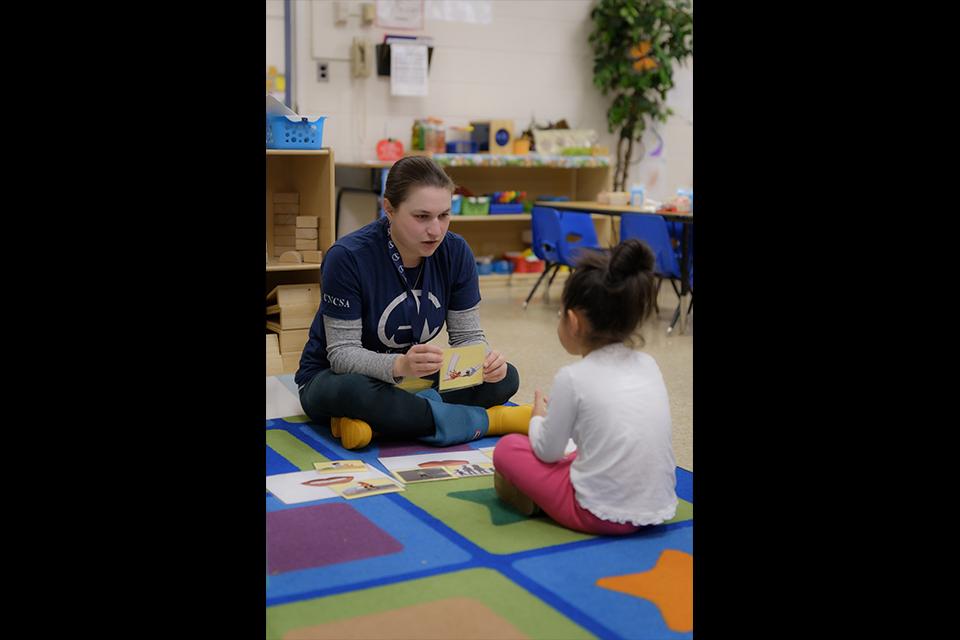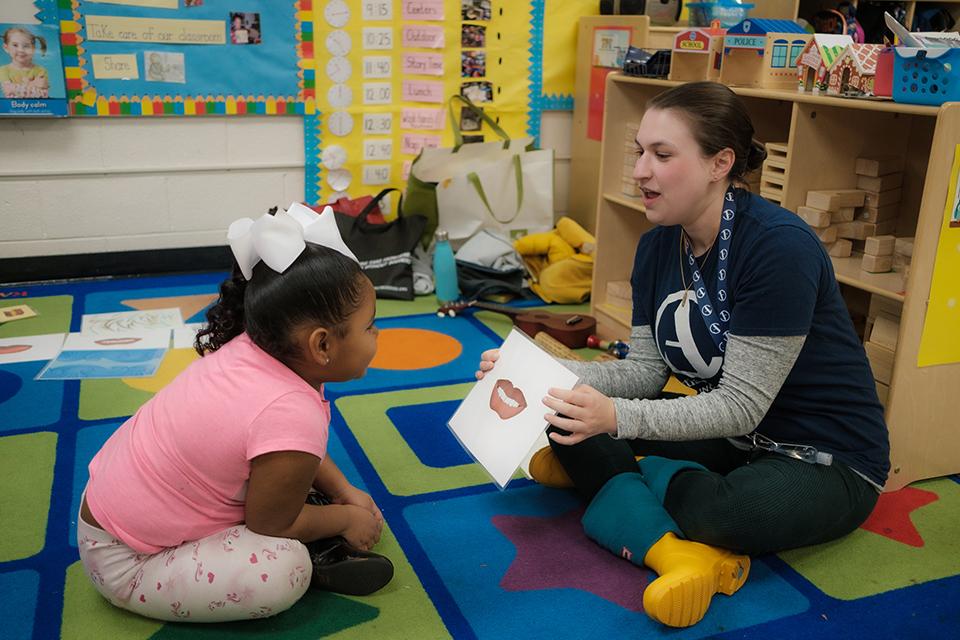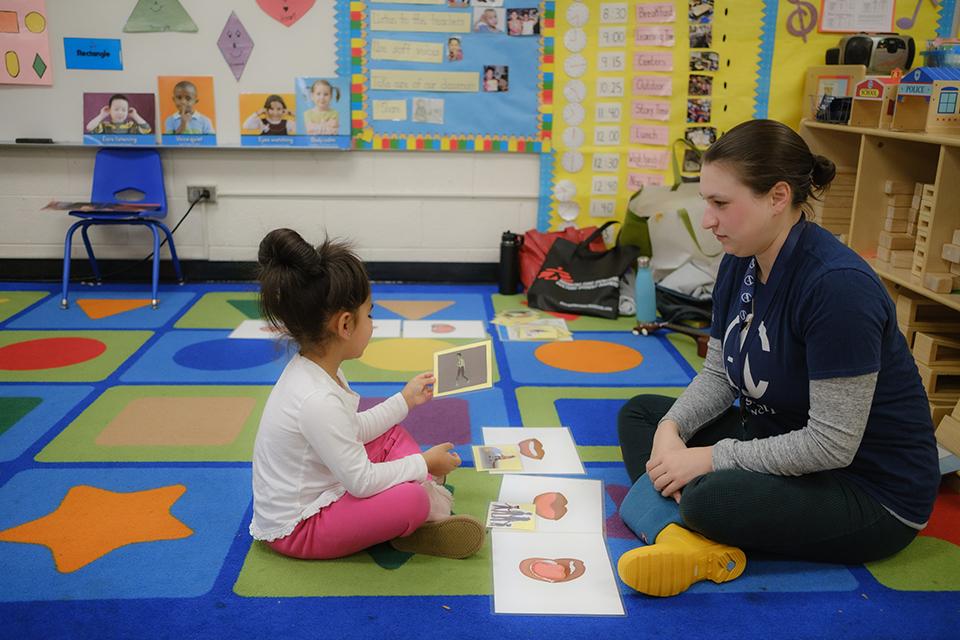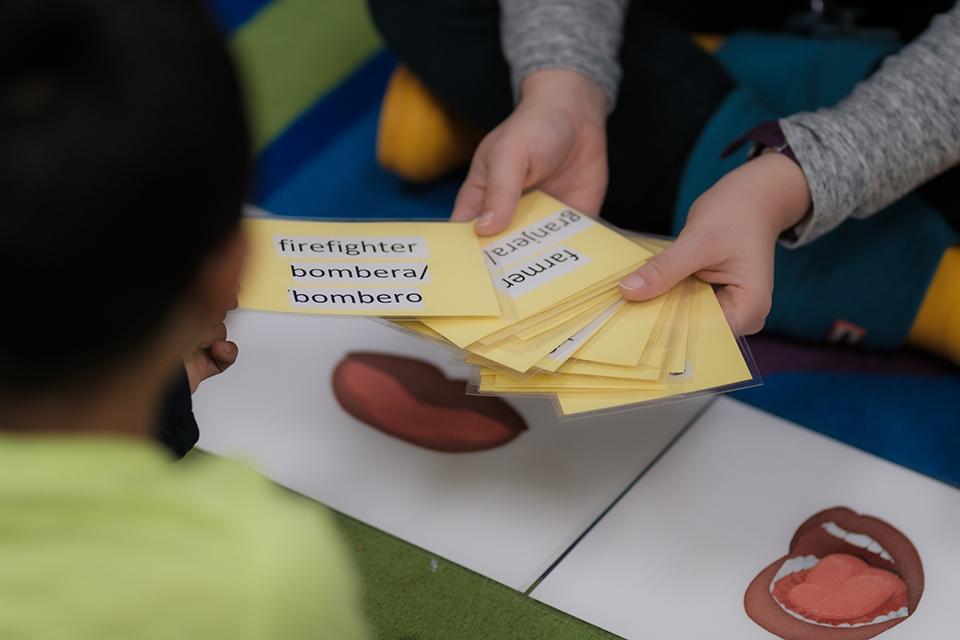Speaking of engagement with the Wolf Method
It's a cold morning just before the holidays. Ann-Louise Wolf (BFA Design & Production '11) sits cross-legged on the floor of a pre-K classroom that's decorated with paper-plate wreaths and other colorful craft projects. It's not where the stage management major ever thought she would be, but it's a happy landing: for her, the children she is teaching at Easton Elementary School in Winston-Salem, and for ArtistCorps, UNCSA's unique community service initiative.
Modeled after the nationwide AmeriCorps program, ArtistCorps was created five years ago to utilize the skills of students and alumni by providing arts instruction, integration and exposure to school-age children and seniors in the Winston-Salem community. Wolf discovered the program when she returned to UNCSA after working around the world for three years as a stage manager for opera productions and then earning an MFA in voice studies from the Royal Central School of Speech and Drama in London. Now she teaches voice and speech in the School of Drama and is a research fellow with ArtistCorps, leading UNCSA students to teach phonics to high-needs children.

Ann-Louise Wolf uses voice and speech training to prepare children for reading. / Photo: Raunak Kapoor
"My ArtistCorps experience has hugely changed my values as a person and a teacher," she says. "I never thought about how to use my skills other than training actors. Community service fills me up and feeds me. It makes me a better teacher of actors."
More than 100 graduate students and upper-level undergrads participate regularly in ArtistCorps projects in local schools, Head Start programs and community service organizations, says Rebecca Nussbaum (BM Music ’97), director of career development and community outreach. In addition to Wolf's project, UNCSA students provide music, dance and visual arts instruction; teach filmmaking techniques to synthesize elementary science and history lessons; deliver meals and a song through Meals on Wheels; and use music to engage with adults who have dementia.
In the classroom at Easton, Wolf begins the lesson with a ukulele in hand. Music and linguistics, she says, occupy the same area of the brain. After singing the "Good Morning Song," she moves into mouth formation exercises, using pictures to illustrate different sounds.
"What's a sound I can make with my lips?"
"B b b bunny," the children call out, matching the cartoon figure to an illustration of the mouth formation.
The lessons incorporate movement and play-based learning as well as music, in a method that Wolf created, based on the premise that every speech sound can be heard, seen and felt.
Community service fills me up and feeds me. It makes me a better teacher of actors.
Ann-Louise Wolf
"If you come from a language that doesn’t have the same set of sounds that English does, you have a disadvantage," Wolf explains. "When children enter elementary school and begin to learn to read, they can't hear some of the sounds, and they can't make those sounds, so they start to fail. Once you get labeled as failing it gets harder and harder and harder to catch up."
Wolf discovered that gap in literacy education her first year in ArtistCorps, when she was assigned to integrate arts into phonics lessons for first-graders. "First grade was too late in the process for children who first learned a different language. Research shows that whatever language you hear from birth to about one year of age, those are the sounds you can perceive. Anything after that you struggle to hear the difference between the sounds you know and those you don't know."
She worked with Nussbaum and former Easton principal Colin Tribby (BM Music '04, HS '84) to create the Wolf Method, now in its third year in Easton's pre-K classes.
"Bringing ArtistCorps on site provides exposure to high-quality art programs for students they normally would not have access to," says Tribby. "The arts help students develop critical thinking skills, visual literacy, and verbal creativity. Arts experiences also blend social, emotional and sensory motor skills. These are all essential ingredients to promote literacy and language development."
Wolf hopes to expand the program into other elementary schools, and will present her method to the international conference of the Voice and Speech Trainer's Association in Sydney, Australia, next year.
While excited by opportunities to share her techniques, her primary focus remains on helping those children at a high-needs school in southeast Winston-Salem. "The challenges are so enormous. When I see these little kids struggle, it gives me perspective," she says. "Whatever I'm facing, it's not the end of the world compared to what some of these kids are going through."
On that cold morning at Easton, Wolf's student and ArtistCorps member is working on the Z sound, holding a picture of a zipper and demonstrating how he forms his mouth to make the sound. "ZZZZZZZ" hisses through the group as the children try it themselves.
Wolf says it isn't easy for students to find time for ArtistCorps or any other community service project. "UNCSA students work hard. It's hard to act in a play. It's hard to perform in an orchestra," she says. "But through ArtistCorps, students begin seeing themselves as artists who have so much to offer. Their skills can be used in ways they never thought of, and their definition of what it means to be an artist begins to expand."
As one of ArtistCorps' staunchest supporters, Wolf encourages her Drama students to get involved. "Community service can seem like another thing to add to the to-do list. But it's so impactful for the community and the school. And for you as an artist.
"You became an artist because you want to make a difference," she tells them. "You don't have to wait for that until you leave school. Engage with this community and let it fuel you.
"How can that make you anything but a better artist?"
This article appeared in the Spring 2020 issue of Scene.
READ THE COMPLETE ISSUE
April 27, 2020
